Dian Fossey - the life and death of the brave "Queen of the Monkeys"
Categories: Africa | Animals | Nature
By Pictolic https://pictolic.com/article/dian-fossey-the-life-and-death-of-the-brave-queen-of-the-monkeys.htmlAmerican Dian Fossey was called the “Queen of the Monkeys.” This brave woman dedicated her life to studying and protecting mountain gorillas and died doing her duty. One day she found herself in Africa out of a desire to know what the world looks like, not changed by man. But this adventure turned out to be so exciting that it became a calling for Diane.
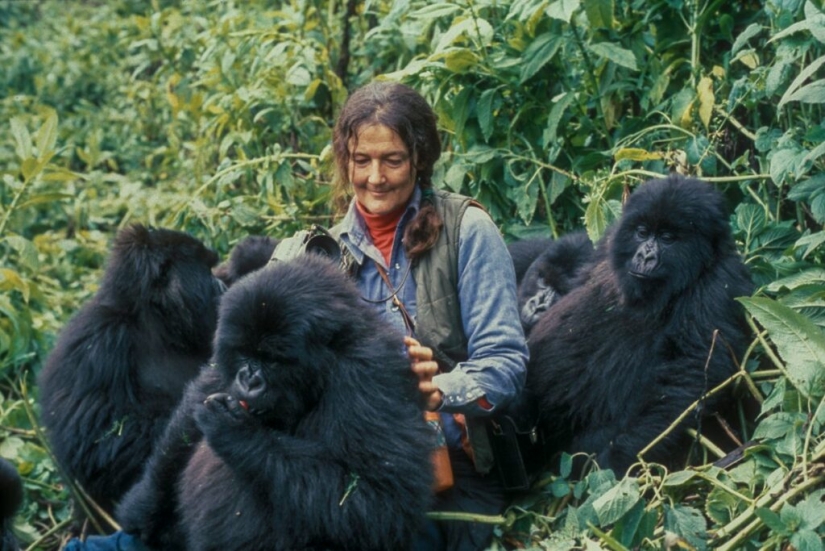
Dian Fossey was born in 1932 in San Francisco, California. Her parents divorced when the girl was 6 years old and her stepfather took her father's place in the family. He was not a cruel person, but he treated his stepdaughter completely indifferently. Diane's mother, passionate about her new relationship, also gradually distanced herself from her daughter.
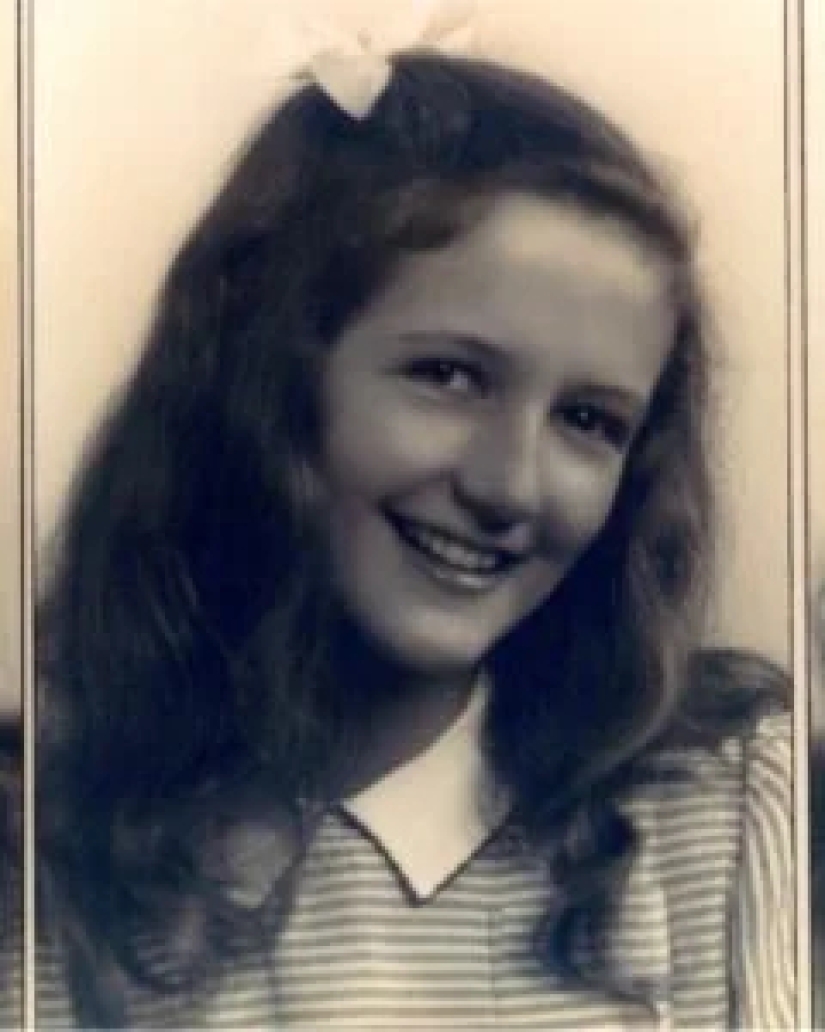
Diane did not need anything, but she felt out of place in her own home. Relationships with peers also did not work out. The only outlet in the girl’s life was animals. But Diane could only communicate with cats and dogs on the street - her mother and stepfather were categorically against pets.
Studying was easy for Diane and it seemed that all roads were open to her. Fossey wanted to become a veterinarian and help animals. But she was unable to enter the University of California without passing exams in physics and chemistry. She managed to go to college and get a degree in child psychology. Diane found a job in her specialty in Louisville, Kentucky. There she spent her days in hospitals and shelters, helping children with psychological trauma.
In Louisville, a guy from the African country of Rhodesia began courting a girl. The relationship between them did not work out, but according to a fan, Fossey fell in love with Africa. She began collecting money for the trip and in 1963, she went as a tourist to East Africa. In Tanzania, Fossey met the famous anthropologist Louis Leakey. She told the scientist about her dream of seeing the wild mountain jungle and the gorillas living there.
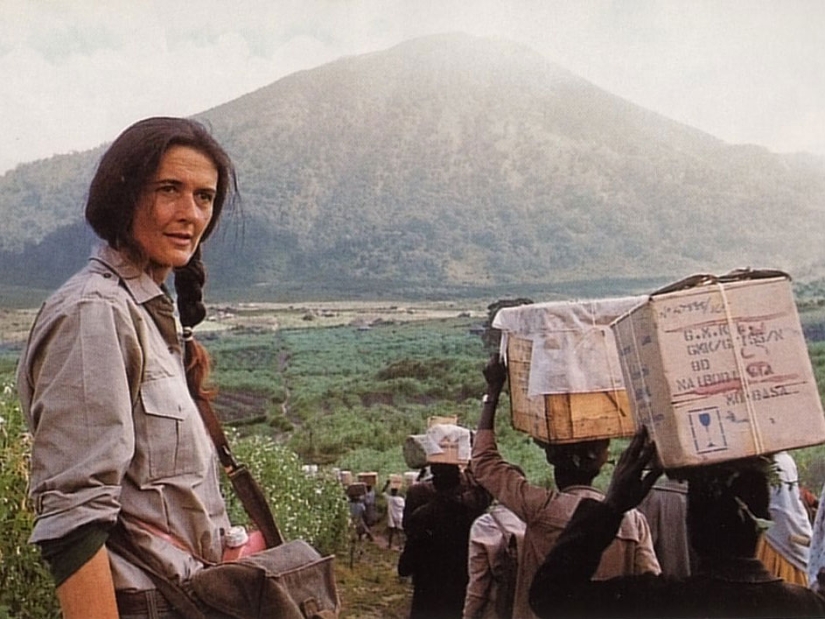
Leakey helped Diane, and just a few days later she found herself in the forests on the slopes of the Virunga volcano. There, Fossey first saw mountain gorillas, about which she wrote in her diary: “They were large and impressive, but not at all ugly.” The woman decided to stay in Africa and study primates.
Louis Leakey helped her again and in 1966, Fossey settled in a house in the jungle, on a high plateau, at an altitude of three thousand meters. This place was located at the junction of the borders of Rwanda, Uganda and Zaire. No laws were in effect there, and the order was established by numerous gangs of poachers, secretly controlled by local authorities.
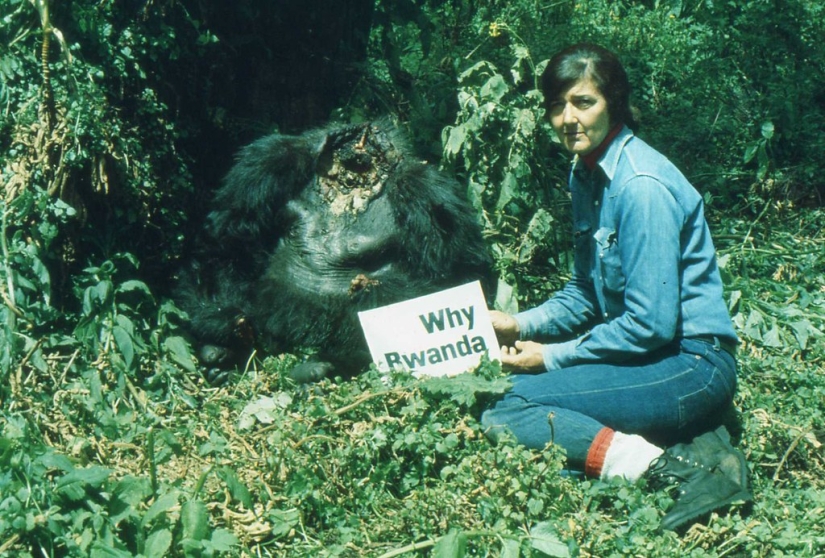
These people made money by killing and capturing rare animals that were in demand among wealthy clients from around the world. Poachers were especially interested in mountain gorillas, the largest and most mysterious primates on the planet. The actions of criminals armed with automatic weapons caused enormous damage to the animal population, which was already on the verge of extinction.
Dian Fossey had to do not only study, but also protect gorillas. To do this, she needed to become “one of their own” for the big apes. It took many months for the gorillas to come to terms with the presence of humans and begin to consider the woman a member of their pack. Over time, strong and dangerous animals became gentle and playful friends of Diane.
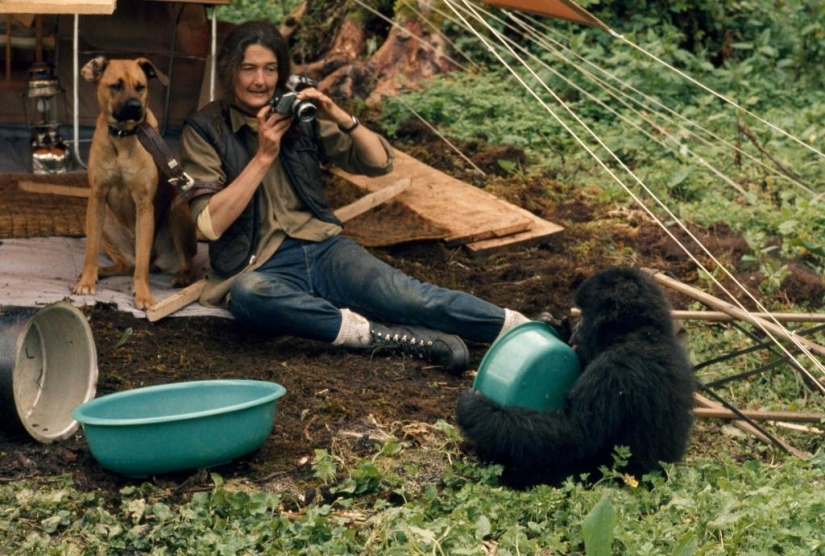
The woman spent 4 years in the jungle. Her services to the study and protection of gorillas were recognized. She received a grant from the National Geographic Society and founded the Karisoke Research Station. In 1980, Fossey defended her dissertation and became a professor at Cornell University. And in 1983, she published the book “Gorillas in the Mist,” which brought her worldwide fame.
Dian Fossey's book was able to attract world attention to the problems of mountain gorillas. In the early 80s, the population of these animals declined catastrophically and amounted to only 250 individuals. Fossey returned to Karisoke Station and continued her work. Now she was considered a leading expert on gorillas, and the station was periodically visited by expeditions of scientists from different countries.
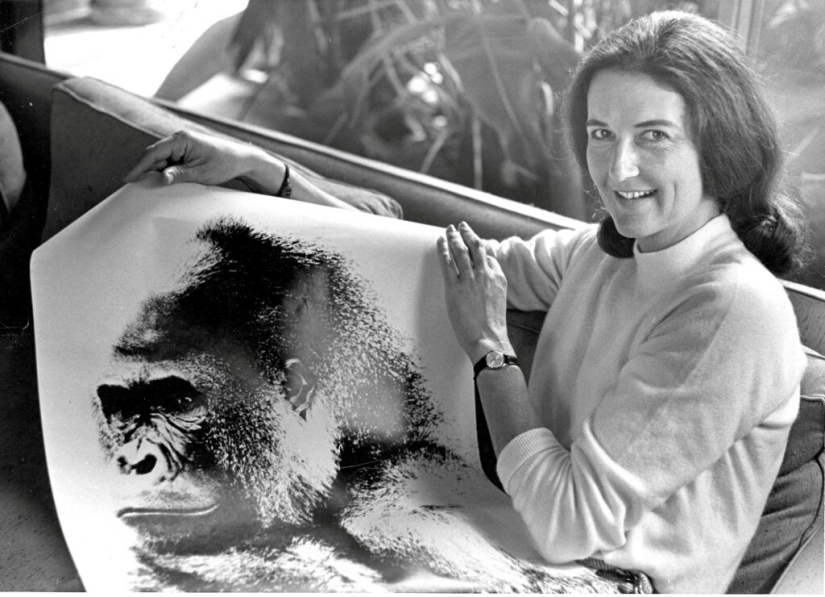
Fossey was a hospitable hostess and was happy to introduce station guests to her possessions. But she still preferred the company of gorillas to people, who recognized only her. Local residents called Diane the “Forest Hermit,” and tourists considered her crazy.
Fighting poachers has become an ordinary job for women. She ambushed them, took away their weapons, and broke their traps. They say that she even flogged captured hunters with her own hands. The authorities of Rwanda, on whose territory the station was located, initially supported the scientist. But over time, it began to interfere with them, depriving them of the illegal income that poachers brought in.
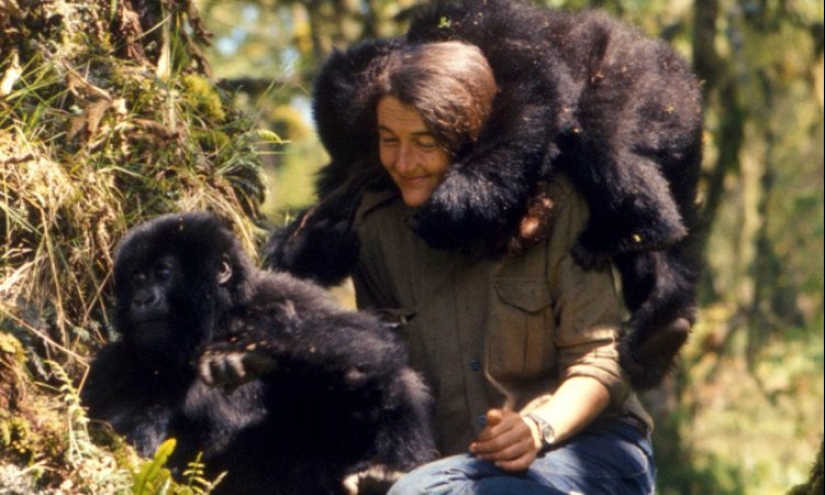
This is what one of the ministers of Rwanda once said about Dian Fossey in a media interview. Over time, open persecution of the “Monkey Queen” began. The gorilla defender's enemies quickly sensed that she had lost her support, with dire consequences.
In the early morning of December 26, 1985, Wayne McGuire, a young American graduate student working at Karisoke Station, was awakened by the screams of black workers. Entering Fossey's cottage, he found her lifeless body on the bed. The 54-year-old woman's head was chopped off and her face was mutilated beyond recognition. The murder weapon, an old machete, lay on the floor nearby.
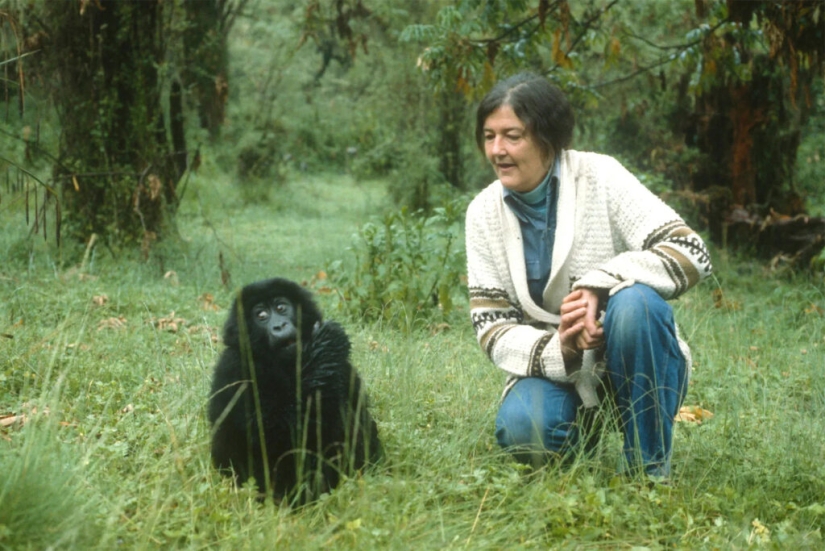
Two months before her death, in October, Diane found a wooden figurine of a viper on her doorstep. It was a symbol of death, used since time immemorial by local tribes. The enemies wanted to intimidate the woman and force her to leave the station. But Fossey was accustomed to threats and did not pay attention to the ominous warning.
When the murder investigation began, Diane's former assistant became the first suspect. A few months before the tragedy, they quarreled and the woman even shot at him to intimidate him. Shortly after his arrest, the suspect hanged himself in his prison cell. The second suspect was American Wayne McGuire.
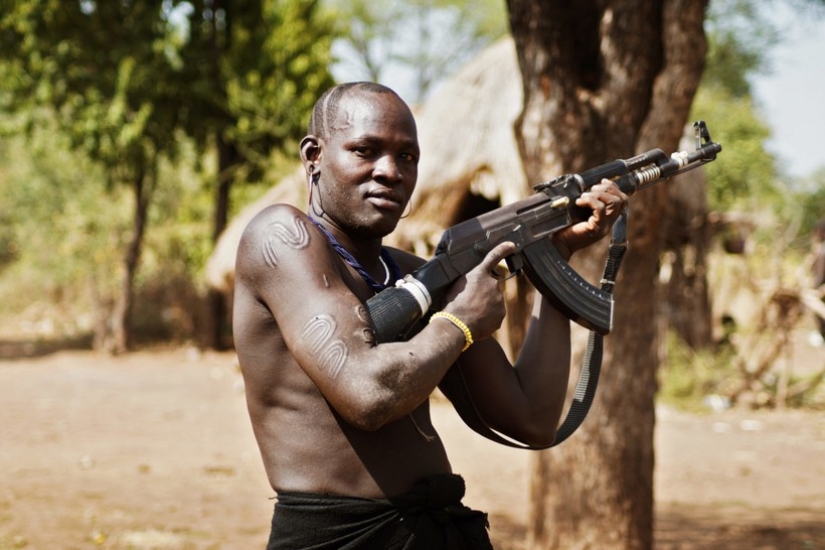
The Northern Rwanda provincial court sentenced the graduate student to death in absentia. But he was already in the United States and in every possible way denied involvement in the crime. But in fact, all the threads led to the prefect of Northern Rwanda. He was a thoroughly corrupt official involved in the illegal trade in gold, diamonds and hunting trophies. At that time he was not subject to jurisdiction.
The Northern Rwanda perfect had an equally dark future. During the genocide in Rwanda in 1994, he led one of the death squads. There were rumors that he was involved in the death of 100 thousand people. It was he who hired a poacher who snuck into the station at night and dealt with Fossey. The woman's killer was never found. And the customer was arrested only 16 years later. He was identified at Brussels airport among a crowd of African refugees. He received a long prison sentence for genocide in his country.
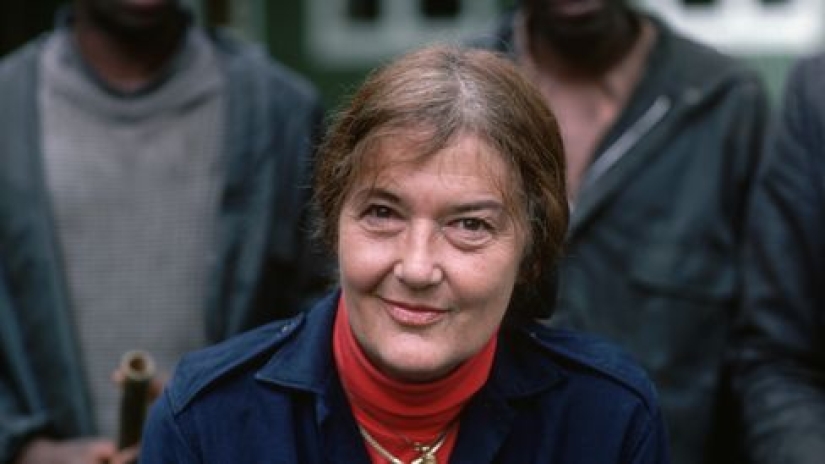
And Dian Fossey found her final resting place in a small cemetery in the jungle. There, the woman and her assistants buried gorillas who died or were killed by poachers. On her tombstone there is an inscription carved:
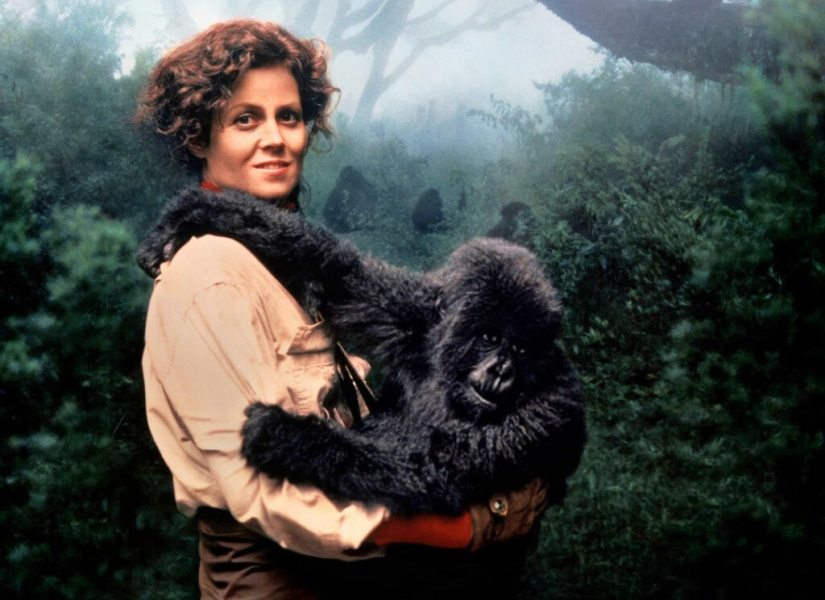
In 1988, director Michael Apted made the film Gorillas in the Mist, which tells the story of the life and work of Dian Fossey. This film stars Sigourney Weaver in the title role. The actress was nominated for an Oscar for Best Actress, and the film received widespread critical acclaim for its emotional power and visual impact. It has become one of the key cinematic works exploring the life and legacy of Dian Fossey, as well as her invaluable contributions to conservation.
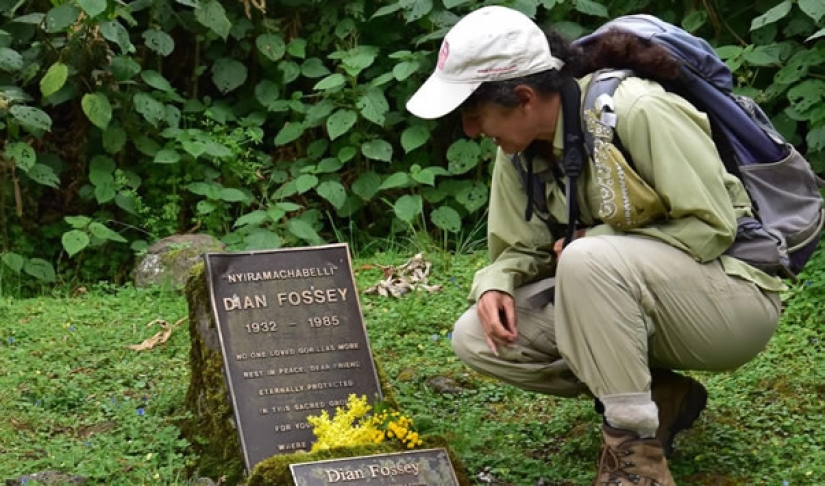
The case of Dian Fossey lives on. The Karisoke station is operational and its staff continue to fight poachers. According to the latest data, there are only 700 gorillas left on the planet. Apart from humans, these animals have no enemies in nature.
Recent articles

It's high time to admit that this whole hipster idea has gone too far. The concept has become so popular that even restaurants have ...

There is a perception that people only use 10% of their brain potential. But the heroes of our review, apparently, found a way to ...

New Year's is a time to surprise and delight loved ones not only with gifts but also with a unique presentation of the holiday ...